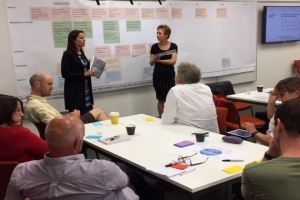Workshops offer insight to inform 5-year science plan
High-Value Nutrition has completed a successful stakeholder planning project, with 114 participants offering their insight and perspective on the Challenge’s science direction for the next five years at a series of workshops held late last year.
Challenge Director Joanne Todd said, “We appreciated the time people gave us and the insights they shared. The Challenge thanks all those who participated in what proved to be a thought-provoking process.” High-Value Nutrition National Science Challenge hosted the four workshops in Wellington and Auckland to inform the drafting of a science plan to guide research for the next five years of the Challenge mission, 2019-2024. Each workshop focussed on one of the health themes, Digestive Health, Infant Health, Immune Health and Metabolic Health. The three further themes, Consumer Insights, Science of Food and Vision Mātauranga were embedded into each workshop as cross-Challenge and enabling research themes. A key goal to ensure a good balance of participants from the research community and industry was achieved with between 20% and 50% of participants from the commercial sector. As the Challenge research projects mature, good engagement with industry and research will support collaboration, co-investment and eventual commercialisation.
Summary of workshop feedback
*Comments filtered to only include those that suggest ways to enhance approach, outcomes, translation. These are comments from workshop participants that apply to the Challenge strategy and mission as a whole. During the workshops, Challenge scientists responded to specific questions on research design.
| Key questions | Summary of feedback |
| Strengths |
|
| Weaknesses |
|
| Opportunities |
|
| Risks |
|
| How can HVN further enhance the research? |
|
| Shape of future contestable funding rounds |
|
